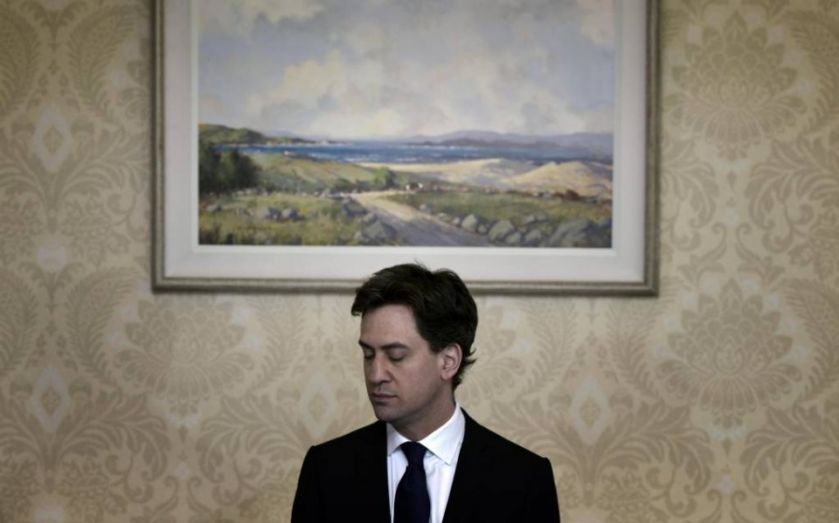General Election 2015: Businesses don’t actually hate Ed Miliband’s economic plan

Labour may have come under fierce criticism for his approach to business (see "50p rate of tax") but it turns out the private sector wasn't totally turned off by Ed Miliband's latest proposals.
Speaking to an audience at the Jaguar Land Rover factory in Wolverhampton (very "man of the people"), Miliband set out a raft of new policies including an "apprenticeship guarantee", to be paid for by private companies bidding for public sector contracts.
He also vowed to grow the economy "from the middle out, not from the top down".
Business organisations, which aren't traditionally fans of Miliband's direction, have given the proposals a cautious welcome.
Christian May, head of campaigns at the Institute of Directors, suggested the Labour leader had "found his voice".
This is an important change in tone from… Miliband and one which will be welcomed by the business community. After all, business and enterprise must be supported and celebrated, not just tolerated. In particular, Miliband’s focus on creating long-term value by boosting productivity and addressing the skills gap will win the support of employers.
Labour’s pledge to have the lowest corporation tax rate in the G7 is also welcome, but it should be stressed that the party has not yet ruled out an increase in the rate. For many small and medium-sized businesses it is the absolute burden which matters more than international comparisons, and we would like to see Miliband go further and rule out a corporation tax hike under a Labour government.
It is hard to square this new-found enthusiasm for wealth creation with Labour’s commitment to reintroducing the inefficient 50p rate of tax. New figures show that revenue raised from these taxpayers jumped by £8bn after it was cut, proving that reinstating the punitive 50p rate would do more harm than good.
Addressing productivity is right. It holds the key to raising living standards and making growth work for everyone. Low productivity has been one of the main reasons for low pay growth in recent years.Raising skills and improving management boost productivity and enable individuals to move into higher paid work. But productivity is different in every sector and the approach to each needs to be tailored if it is to work. We need to learn from the industrial strategy but be clear that it won’t be right for every sector. For example, manufacturing is focused on exports and international competitiveness in a way that retail isn't.Boosting productivity is a job for business not for government but government can help us better understand the causes of low productivity. And government also needs to listen to and work with business to address barriers to improving productivity, such as the planning system holding back investment.